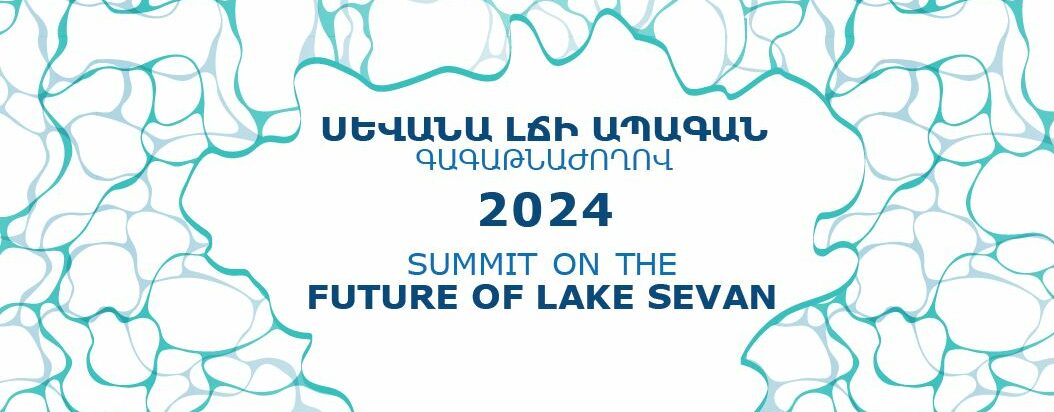Summit on the Future of Lake Sevan

Project funder: European Union’s EU4Sevan program and its implementing partner Deutsche Gesellschaft für Internationale Zusammenarbeit (GIZ)
Event date and time: June 28, 2024; 10:00-17:00
Venue: American University of Armenia (Yerevan)
Summit Agenda: Download here.
Summit Presentations download links:
Wastewater Management
Intersectoral Coordination
Monitoring and Data Management
Fertilizers
Summit registration: Required in the following link.
Academic participants: If you wish to submit research posters fill out the form in this link by Jun 10, 2024
Overview: The Summit on the Future of Lake Sevan aims to exchange knowledge, foster collaboration, and inspire action to generate innovation, advocate for meaningful policies, and promote awareness, empowering individuals and organizations to create a more sustainable and resilient future for Lake Sevan.
The daylong summit will feature a variety of components, including a poster show with “Market” presentations, a panel discussion, and a keynote speaker.
The Summit on the Future of Lake Sevan will focus on:
— Wastewater treatment to reduce the flow of pollutants into the lake;
— Sustainable agricultural practices to protect water ecosystems;
— Water monitoring and environmental data management for science-based decision-making;
— Improved legislative-institutional frameworks and intersectoral cooperation for effective management of the Lake Sevan ecosystem; and
— Community engagement, civic participation, environmental education, and other strategic topics.
Distinguished invitees include the Deputy Prime Minister of Armenia, RA Minister of Environment, head of the Delegation of the European Union to Armenia, and the Federal Republic of Germany Ambassador in Armenia.
The Summit on the Future of Lake Sevan is hosted by the RA Ministry of Environment in the framework of the EU4Sevan project, with the AUA Acopian Center for the Environment as the co-host and co-organizer.
The EU4Sevan project is co-financed by the European Union (EU) and the German Federal Ministry for Economic Cooperation and Development (BMZ) and implemented by Deutsche Gesellschaft für Internationale Zusammenarbeit (GIZ) GmbH as a part of the “ECOserve” programme, and United Nations Development Programme (UNDP).
